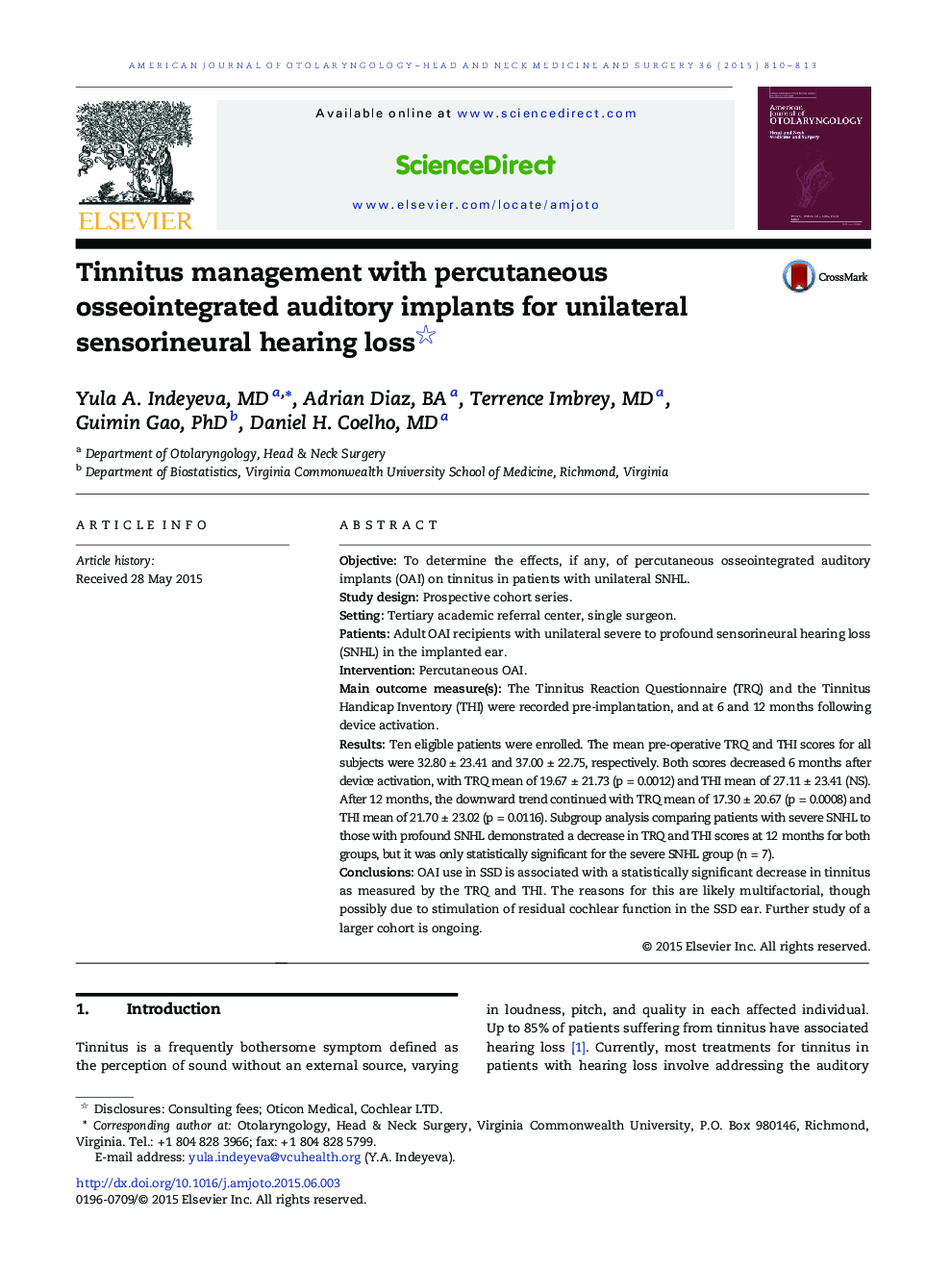| Article ID | Journal | Published Year | Pages | File Type |
|---|---|---|---|---|
| 4103281 | American Journal of Otolaryngology | 2015 | 4 Pages |
ObjectiveTo determine the effects, if any, of percutaneous osseointegrated auditory implants (OAI) on tinnitus in patients with unilateral SNHL.Study designProspective cohort series.SettingTertiary academic referral center, single surgeon.PatientsAdult OAI recipients with unilateral severe to profound sensorineural hearing loss (SNHL) in the implanted ear.InterventionPercutaneous OAI.Main outcome measure(s)The Tinnitus Reaction Questionnaire (TRQ) and the Tinnitus Handicap Inventory (THI) were recorded pre-implantation, and at 6 and 12 months following device activation.ResultsTen eligible patients were enrolled. The mean pre-operative TRQ and THI scores for all subjects were 32.80 ± 23.41 and 37.00 ± 22.75, respectively. Both scores decreased 6 months after device activation, with TRQ mean of 19.67 ± 21.73 (p = 0.0012) and THI mean of 27.11 ± 23.41 (NS). After 12 months, the downward trend continued with TRQ mean of 17.30 ± 20.67 (p = 0.0008) and THI mean of 21.70 ± 23.02 (p = 0.0116). Subgroup analysis comparing patients with severe SNHL to those with profound SNHL demonstrated a decrease in TRQ and THI scores at 12 months for both groups, but it was only statistically significant for the severe SNHL group (n = 7).ConclusionsOAI use in SSD is associated with a statistically significant decrease in tinnitus as measured by the TRQ and THI. The reasons for this are likely multifactorial, though possibly due to stimulation of residual cochlear function in the SSD ear. Further study of a larger cohort is ongoing.
